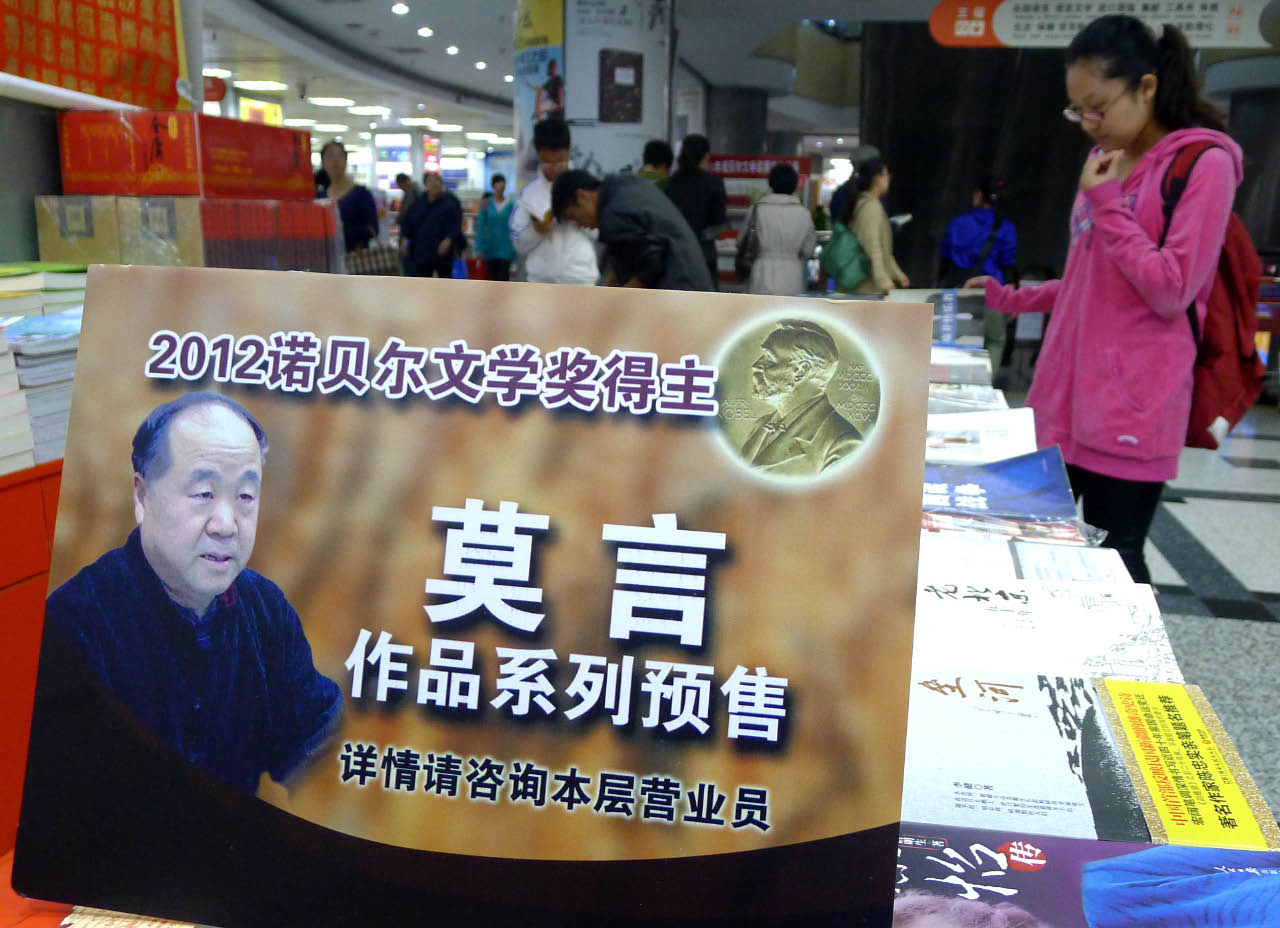Mo Yan Speaks About Rural China
By LI NA
WHEN judges in Sweden awarded Mo Yan the 2012 Nobel Prize in Literature and he was suddenly thrust into the world’s limelight, he was not sitting in front of the TV waiting for the news, as he doesn’t want his grandson to grow up with TV. At the time Mo Yan was in his hometown, Gaomi, a city in Shandong Province, where he returns every autumn from Beijing. As he explained, “I like to spend time with my father and fellow villagers, to be close to the earth and witness the dramatic changes that are happening in rural China, and to better understand what farmers are thinking.”
Mo Yan is already quite well known internationally. As early as 1988, his novel Red Sorghum Clan was adapted for the silver screen as Red Sorghum with the screenplay written by Mo Yan himself. The movie played to audiences around the world and won director Zhang Yimou the Golden Bear Award at the 38th Berlin International Film Festival.
Anna Gustafsson Chen, a Swedish translator who has helped Mo Yan publish some of his works in Sweden, says that China’s territory on the literature world map has in the past been sparse and not considered important. Therefore, the Nobel Prize Committee’s acknowledgement of Mo Yan’s importance is a triumph for Chinese literature.
 |
| Mo Yan has become a best-selling author since winning the Nobel Prize. CFP |
Scrutinizing Human Nature
Mo was awarded the Nobel Prize in Literature for his work as a writer “who with hallucinatory realism merges folk tales, history and the contemporary.” But Mo Yan himself thinks that the most poignant element of his writing is its portrayal of his people. As he says, “What I’m doing is to write about humans from their perspectives. I believe such works can transcend regional, ethnic and racial limitations.”
Born in 1955 as Guan Moye to a rural family in Gaomi County, now Gaomi City, in Shandong Province, his choice of the pen name Mo Yan, meaning “don’t speak,” was closely related to his experiences growing up. He completed primary school in the heat of the “cultural revolution” (1966-1976). Because his family was tagged middle-class peasantry – a discriminated, non-proletarian status during the period of “class struggles” – and he was at odds with his teacher, he lost his right to attend middle school. So he started to work in the field in his early teens and “did farmwork that should not have been done by children.” In those years Mo Yan would murmur to himself, causing his parents and other villagers to suspect that there was something mentally wrong with him. He was, however, doing this to avoid trouble by talking less to other people.
Mo Yan is frank about his reasons for pursuing writing as a career. “On one hand, it was a practical step to change my life; on the other, I felt that I had much to say and hence the impulse and desire to write,” he said, adding, “I wanted to tell my life, the things I had seen, to other people in an artistic way.”
In 1976 Mo Yan joined the People’s Liberation Army (PLA), a highly honored occupation and the dream of every Chinese boy at the time. He carried on with his writing as a soldier and in 1981 published his first work Falling Rain on a Spring Night in a local magazine where his troop was stationed. Three years later he entered the Department of Literature of the PLA Academy of Arts, and in 1985 his novella Transparent Radish brought him fame.
Over the past three decades he has published over 100 works, including novels, novellas, and short stories. In the preface to his latest drama collection Our Jing Ke, Mo Yan remarked that during all those years he had been writing about others and the outside world. This time he was writing about himself, about his inner world by “scrutinizing ‘me.’” To Mo, writing about “me” is an important part of writing about “humans.”

